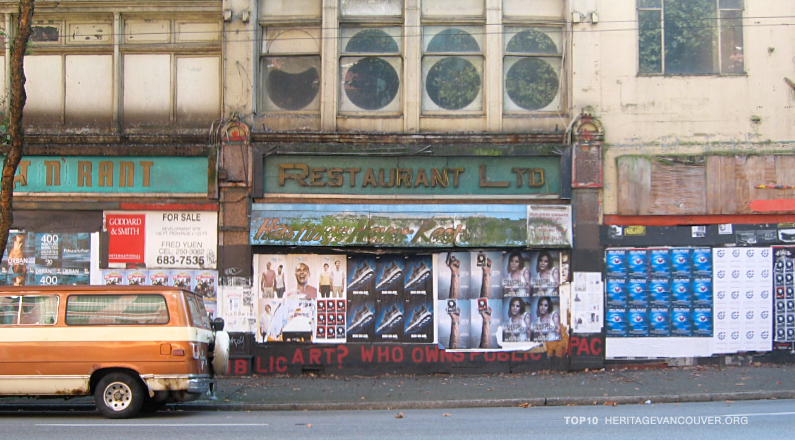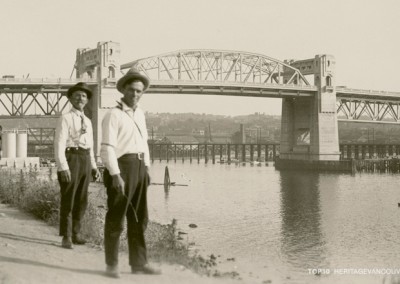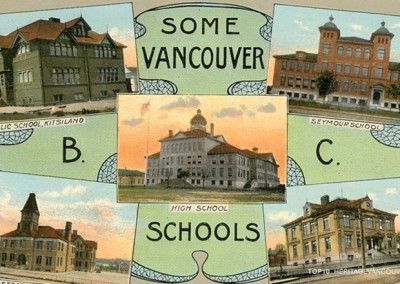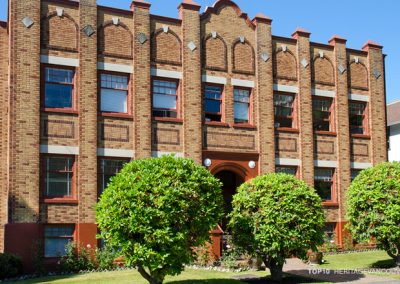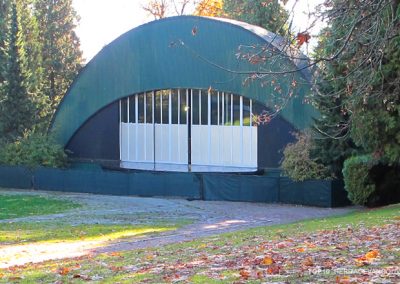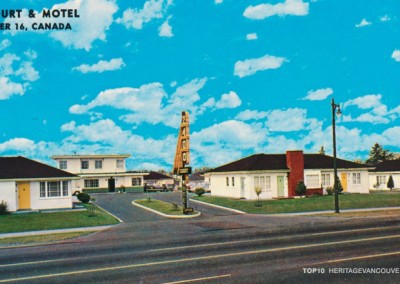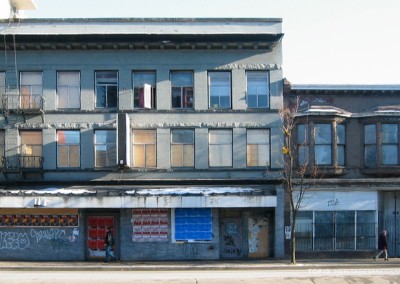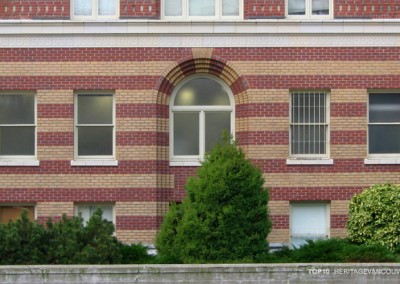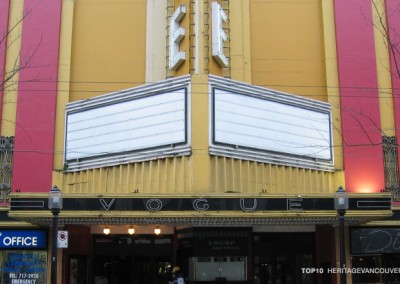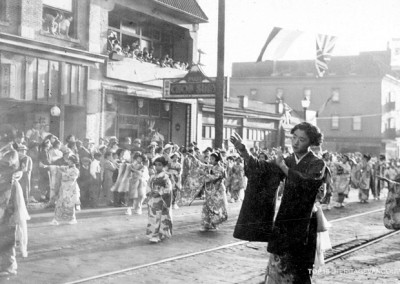Once the commercial heart of Vancouver, the south side of East Hastings between Cambie and Carrall is one of the city’s best surviving turn-of-the-century streetscapes, with ten Register buildings, including the former Carter-Cotton (later Province newspaper) building.
Since the 1993 closure of Woodward’s, almost the entire block — dubbed “Vancouver’s worst block” — has sunk into a deep malaise noted for its derelict buildings, boarded storefronts, and dodgy street scene. The empty turn-of-the-last-century buildings desperately need rescue before all is lost to decay and demolition.
Among the block’s treasures is the moldering hulk of the Ralph Block (1899), featuring an important cast-iron façade designed by prominent architects Parr & Fee, and the Henderson Block (1899) on the east side, by architects Grant & Henderson. Abandoned for many years, the buildings, structurally compromised, could be beyond rehabilitation, as may well be the case of other buildings on the block, including the building that housed the once-popular Perel Tailors at 112 West Hastings Street (later the Perel Gallery).
There are, however, signs of life: on the northeast corner of Hastings and Cambie, the heritage tax incentive program, recently extended to the Hastings Corridor, is helping to rehabilitate the rusticated-stone Flack Block.
Just to the east, the new Woodward’s complex will rise, regrettably, on the site of the historic department store but it will bring new economic life to the street.
One block east, the 1907 vaudeville gem, the Pantages Theatre [now demolished], will, it is hoped, be restored to its original glory as a performing arts venue. And the Ralph Block and Henderson Block both have new hoarding over upper-floor windows, a signal of possible development interest.
We await with both fear and anticipation — new investment is urgently needed before decay becomes terminal. Yet how much of this precious streetscape will be saved if the economics of redevelopment trump the economics of retention, as happened at the Woodward’s site?
